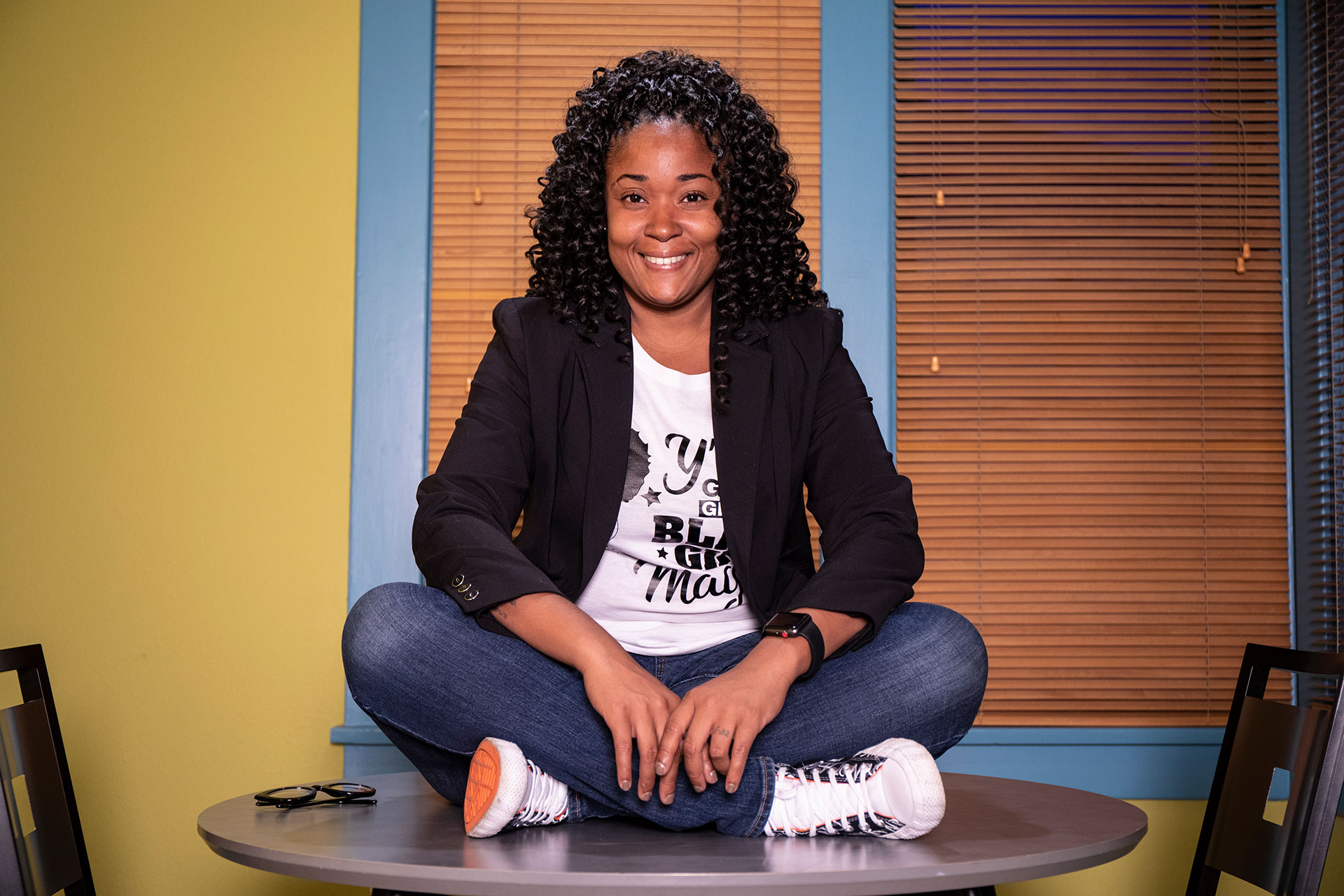Honoring and Learning from Kitchen Table Conversations
Professor Heidi R. Lewis believes that things of great value happen around the kitchen table.
Lewis is director and associate professor of feminist and gender studies at Colorado College. Her work amplifies voices of people who have been marginalized and oppressed.
"I'm always thinking about what's happening systematically and systemically to people who are oppressed along the lines of race, class, gender, sexuality, and other social, cultural, political markers, and that shows up in my teaching, because a lot of my content in my courses is focused on that."
"One of the things that we talk about in Black feminist theory is the significance of the kitchen table," she says. "The kitchen table is a place where a lot of people, but especially Black people, especially Black women, do a lot of theorizing, thinking about the world, trying to explain the world, trying to understand the world. And so a lot of the writing that comes out of Black feminist theory was written with that in mind."
Lewis teaches Introduction to Feminist & Gender Studies, Feminist Theory, Black Feminist Theory, and Hidden Spaces, Hidden Narratives: Intersectionality Studies in Berlin, among other courses.
"One way that I would describe my pedagogy is that it is committed to a Black feminist way of knowing and teaching. And what that means for me, in part, is that the work that I do is concerned with oppressed people," Lewis says. "I try to offer students the opportunity to read scholars, to read artists, to read activists, that they might not ever have the chance to read if they hadn't taken my courses. People who don't necessarily have bachelor's degrees, let alone Ph.D.s, people who are out in the streets, working on behalf of single mothers, working on behalf of drug addicts, sex workers, and trying to help people to understand their situations, and to fight the oppression that has caused a lot of their situations.
The Fem Geniuses
Several years ago, Lewis launched the "Fem Geniuses" website in order to showcase her students' work.
"They started doing all these collaborative, creative assignments in my courses, and I wanted to show those to people and I needed a space to do it," she says. "So I made a website. Now, you can see assignments that my students do in my intro class, my study abroad course in Berlin, my critical media studies course, and also, we showcase our monthly newsletter called the Monthly Rag, that students have been publishing since 2002. For the past few years, we've uploaded editions of the newsletter there, and we hope to be doing multimedia content with that in the next few years. It's a place that I wanted to create virtually to showcase my students' work, to share it with people who don't have access to higher education who are interested in the work that we're doing."
"A lot of the people that I teach - like Toni Cade Bambara, like Frances Beal - a lot of them are not taught anywhere else. And so what my Black feminist pedagogy allows me to do is to amplify the voices of people who've been marginalized in the academy and to help my students understand why those voices are just as important when we're thinking about matters such as power, dominance, and oppression."
Lewis's style of teaching and the way she engages her students is unique.
"I get so excited when I'm in the classroom. It's hard to know how it happens or why it happens. I just feel really strongly about the work that I do, and I get really excited about it. I'm always sweating in the classroom, moving around a lot, my hair is always a mess at the end of the day. It's because I still feel electric when I teach the people that I do. They've been so fundamental to my own intellectual growth that every time I come to work, I'm reminded that there are a certain group of people who made that possible. And I'm able to teach those people to young people who may have never had that opportunity to read them before. And I'm very casual in my classroom," she says. "At the same time, I'm very strict, and I'm very particular about certain things. I'm very strict about the honor code statement being on every assignment that students do. But I speak to my students the same way I speak to my mom, who's not degreed, the same way I speak to my husband, who's not degreed."
"It's really important to me as a Black feminist educator to model for my students that who I am in my personal space is just as valuable as who I am in my professional space. That's where the kitchen table shows up in my classroom. I speak the same way to my students as I do at my kitchen table.

